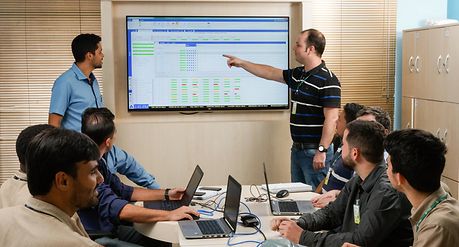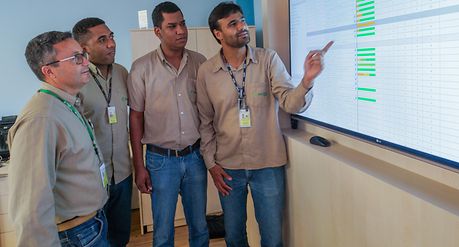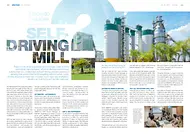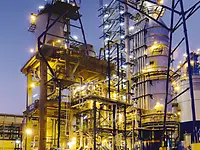"A start-up starts up...BIG"
Eldorado Celulose - self-driving mill?
There is a lot of news available about Google, Uber, and the automobile manufacturers’ efforts to develop autonomous automobiles (i.e., unattended and self-driving vehicles capable of sensing their environment and navigating without human input). On the other hand, there has not been much news about efforts to develop an Autonomous Pulp Mill. Until now.
The development of the Autonomous Mill is following the same path as that of the autonomous auto. First, smart sensors and instruments were required to reliably collect data. Next came secure and robust communications methods to move the data from the mill floor to a control computer, and back. And now comes the software and human expertise to combine equipment data with data pulled from process computers (DCS) and data mined from a mill’s enterprise- wide computer (ERP) to “navigate” the best path for production and profits. That software/service is called Optimization of Process Performance (OPP) and is offered by ANDRITZ.
OPP has been around for over a decade, and is being implemented in various forms at about 50 mills around the world. However, the most ambitious – and arguably the most impressive – work just completed its first year of testing as the Autonomous Mill project at Eldorado Celulose’s mill near Três Lagoas (MS), Brazil.
AUTOMATED – AUTONOMOUS
Autonomous means self-governance: satisfactory performance despite uncertainties in the environment – with the ability to compensate for system failures without external intervention. “Autonomous implies acting independently,” explains Leonardo Soares Figueiredo, ANDRITZ’s OPP Project Manager at Eldorado. Figueiredo is a member of a new group within ANDRITZ called ANDRITZ Process Optimization (APO). “Most of our work at Eldorado to date still has an operator in the driver’s seat, so perhaps ‘automated mill’ more accurately describes what we are doing today – with an eye toward autonomy in the future.”
Carlos Monteiro, Eldorado’s Industrial Director, does not care whether it is autonomous or automated. Monteiro is focused on results. “I can tell you this,” he says, "the results in the first year have been impressive.”
Bottom line: an increase in operational efficiency from 89.2% to 93%; variable cost reduction of 5%; 38,000 admt production over the budgeted amount; controls in automatic mode 95% of the time.

Leonardo Pimenta, Technical Control Manager, meets with the OPP team to discuss progress. The team consists of Eldorado process engineers, reliability engineers, and ANDRITZ OPP analysts working side-by-side.

(Left to right): Luiz Roberto Araujo, Maintenance Manager; Fabio Castro Soares, Instrument Technician; and Rafael da Silva Teodor, Electrical Maintenance Specialist, look on as Reliability Engineer Uliam Mazzardo Veloso shows the asset risk profi le that is updated in real time in the OPP system.
KPIs MET
Early in the project, Eldorado and ANDRITZ set clear goals against which to measure success. These goals, known as Key Performance Indicators (KPIs), form the basis for 30% of ANDRITZ’s compensation, so are important. What gets measured gets done.
“Setting the correct KPIs requires very open discussions between a mill and us,” says Luis Binotto, Senior Vice President of ANDRITZ’s APO group. “Their targets are our targets. There is only one team here.”
The three KPIs selected most critical are: 1) operational stability in the 90-93% range; 2) a reduction in variable costs vs. budget; and 3) all the APC routines will be turned on at least 90% of the time.
There is a very defi nite correlation between OPP and operational stability – which leads to higher throughput. In less than one year, some important milestones were achieved: a new record for quarterly production from January to March; a new monthly production record (average 5,045 admt/d) in May; a new quarterly production record from April to June; and in August a new average production record of 5,105 admt/d was set.
“A BIG DIFFERENCE”
According to Monteiro, OPP has made a “big difference” in Eldorado’s performance. “In a short time, we have achieved excellent results,” he says. “Every loop in APC makes us money. Selfishly, I would prefer if no other pulp mills would investigate OPP. But even for those who do, we intend to keep pushing, and to stay ahead.”






